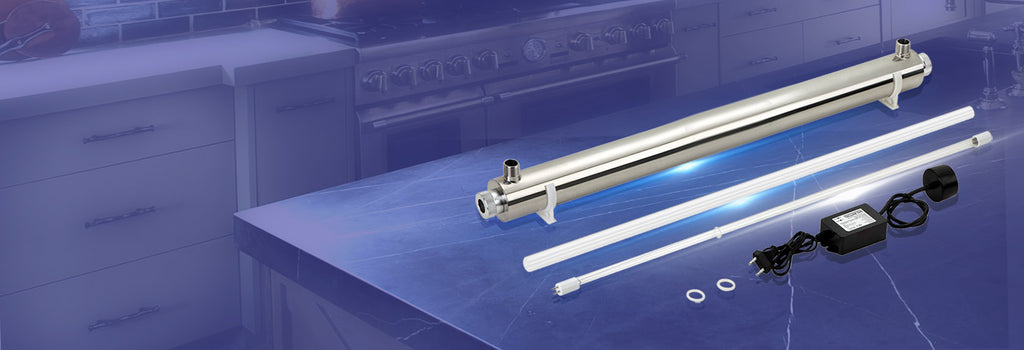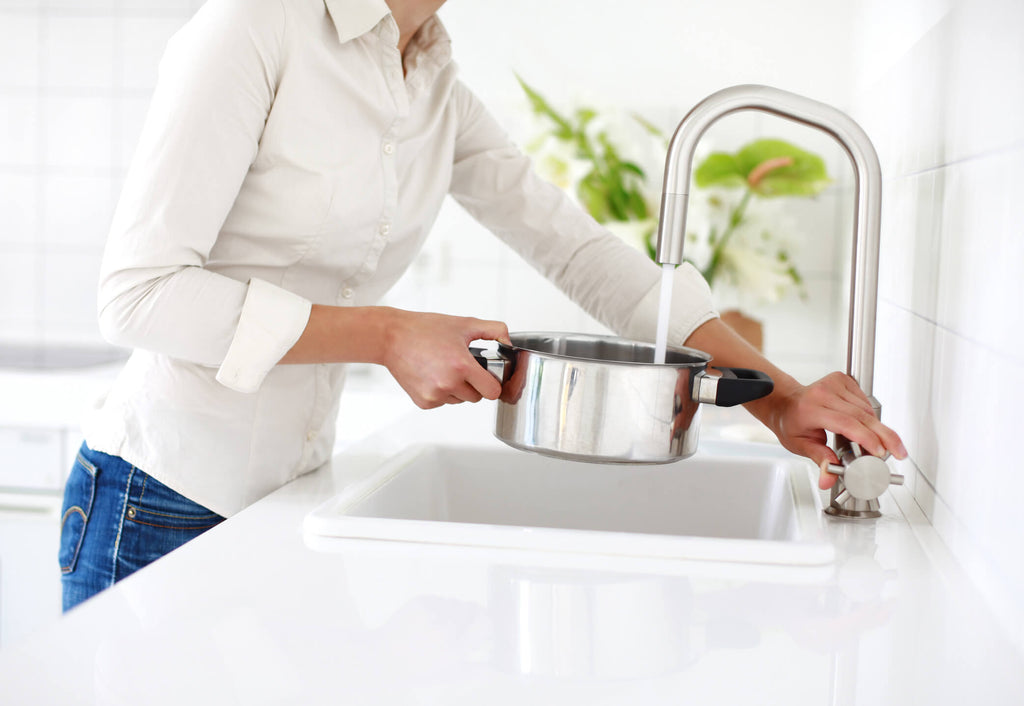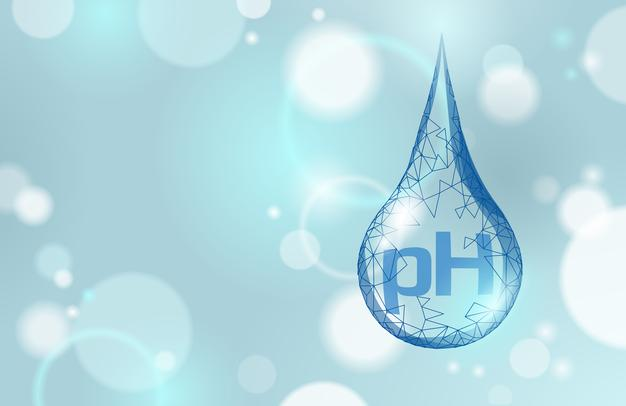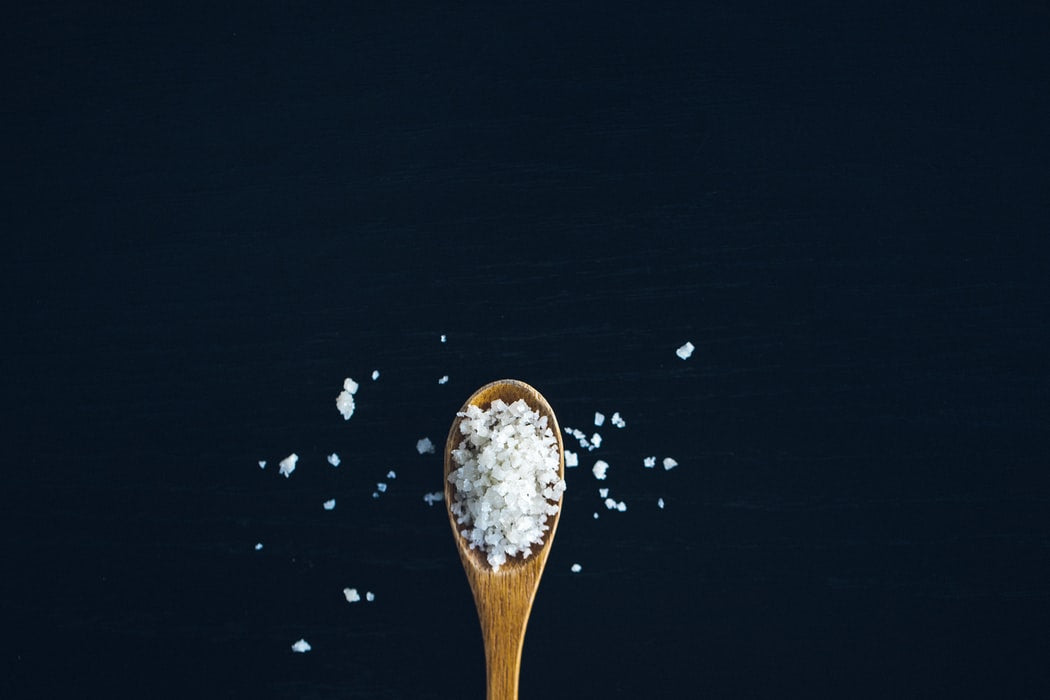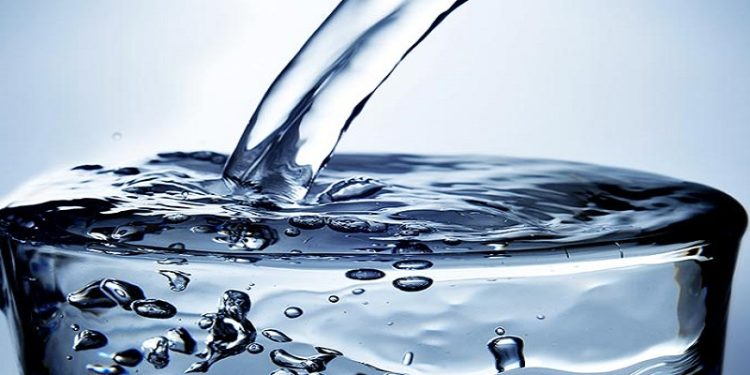How does water softeners help prevent itching after shower
Nothing is as amazing as taking a warm shower after a long, tiring day or workout. When warm water are pouring down on you, it seems as almost all stress that you felt suddenly vanished, making you feel more refreshing. But what happens when the euphoria after a shower turns into a nasty itch?
Itchy skin are more common that you may think. And even if you use milder soaps or harsher skin rubs, the effect won’t go away, because the reason for it may come from your shower. That’s correct- hard water, a problem that has been affecting over 85% of American households, perhaps it’s also the reason why you got itchy skin after a shower.
Hard water is known for its ability to absorb moisture from the skin, making the skin more dried and itchy. The good news is that you can permanently remove the itchy feeling you get- All by simply one household item for your house.
How can hard water create itching after a shower?
“Hard water” is described as water that contain high content of dissolved minerals, namely calcium and magnesium and in some cases iron and manganese. When water seeps through rocks and soil, it absorb the minerals from limestone, chalk or plaster. The harder the water, the more minerals it has, which can ruin your skin many ways:
They make soaps and skin cleansers less effective
The nasty minerals in hard water are unsuitable for soaps and skin cleansers, even the expensive ones. When water contains a lot of minerals, it will not dissolve soap well. Instead, the minerals combine and react with the soap to create a “soap scum”. This sticky, coarse film clings to the skin and can be difficult to wash off. You may also feel like there’s a layer of residue on your skin and not a “clean” feeling.
They hydrate the skin
Hard water also leaves hard calcium deposits on the skin after bathing. When these flakes attach to your skin, they change the oil’s chemistry and strip away the natural oils that help keep skin moisturized. And results? Dry, itchy skin after a shower – you guessed it! Then it’s likely that your shower water is too hot or that you’ve been in a hot, steamy shower for too long. People who shower with very hot hard water or stay in water for too long often experience dryness, wrinkling and breakouts due to clogged pores, which may explain the post-shower dilemma. It’s even worse for people with sensitive skin, eczema, or psoriasis.
They weaken the skin’s protective barrier
The minerals that exfoliate the skin and the impurities in hard water can form free radicals that break down elastic tissue and collagen—the two most important ingredients for our skin to look healthy, firm and toned. sure. As the skin barrier weakens over time, it can cause many problems such as irritation, acne, rosacea, eczema, and hyperpigmentation. Furthermore, free radicals can damage the skin’s microbiome, leaving it dry, dull, flaky, and causing wrinkles.
They upset the delicate pH balance of the skin
Looking at your skin care product label, you may see “pH” written somewhere on it. This is because maintaining the pH balance of our skin is essential to making the skin look healthy. Unfortunately, hard water can disrupt this delicate balance and lead to post-shower itching and other skin problems.
The pH measures acidity or alkalinity on a scale of 0 to 14, with 7 being neutral. Our skin has a natural pH around 5.5, which is slightly acidic. This acidic environment helps prevent harmful bacteria from growing on our skin and supports the skin’s natural barrier function.
Due to the mineral content in hard water, the water is considered alkaline. That means washing the skin with hard water can disrupt the skin’s natural pH balance by raising its pH to become more alkaline. Disrupted skin pH can lead to various skin problems, including dryness, irritation, acne, and premature aging.
Other common problems associated with hard water
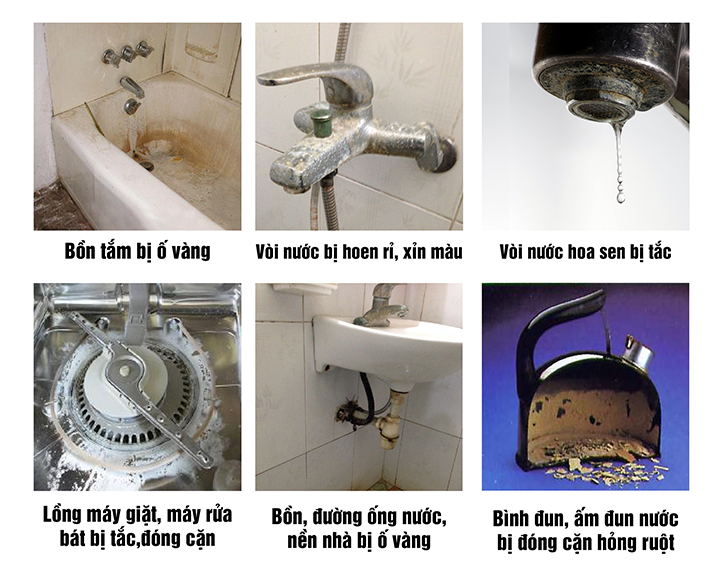
Hard water is not only an enemy to your skin’s health, but it can also cause other costly, embarrassing, and uncomfortable problems. Here are a few of them:
Dry and frizzy hair
Just as hard water can be detrimental to the skin, it can significantly damage hair. The mineral composition of hard water can strip the hair of its natural oils, leading to dry, brittle and lifeless hair. Furthermore, hard water can cause mineral buildup on the scalp and hair, making hair management and styling difficult.
Furthermore, if you recently dyed your hair, washing your hair with hard water can cause the color to fade quickly, leaving your hair looking dull and lifeless. Hard water can also make your hair rough, prone to tangles and breakage, making it harder to maintain and stay healthy. And just like when showering with hard water, a good lather can be difficult for hair, leading to more damage from scrubbing and the need for more shampoo.
Stains and spots
For your hair and skin, hard water can also leave mineral deposits on dishes, utensils, showers, faucets, and more, making cleaning a nightmare. The kettle boils and you spend too much time polishing glasses and silverware. In some cases, clumping calcium can cause permanent damage to delicate surfaces, resulting in costly repairs.
Dull and dirty clothes
Hard water can also affect your laundry. Dissolved minerals can harden fabrics and fade colors, leaving your clothes looking dull and dull. In addition, minerals can interfere with the detergent, reducing its effectiveness and leaving dirt behind. As a result, you may need more detergent or fabric softener to achieve the desired results, resulting in increased spending on laundry products.
Clogged up pipe
Minerals in hard water can also be a problem for your home’s plumbing. Calcium and magnesium deposits are left behind when hard water flows through the pipes. Sooner or later, these minerals build up in the pipes and clog them like cholesterol can clog arteries. In addition to reduced water flow, clogged pipes mean lower water pressure and expensive pipe replacements in severe cases.
Damaged equipment
As if their effects on skin, hair, and pipes weren’t enough, minerals in hard water can build up inside appliances that use water. This buildup can cause appliances like dishwashers, washing machines, and water heaters to work harder to heat the water, resulting in increased energy use and higher electricity bills. Furthermore, minerals can coat heating elements over time, reducing device performance and causing them to overheat and fail.
How to know if your water is hard or soft
If you’re curious about water hardness, simply enter your zip code into the search engine to get a rough estimate. For greater accuracy, purchase a water test kit to better understand the specific mineral levels in your home water.
By conducting a water test, you can determine the exact number of particles per gallon (hardness unit) and identify specific minerals that contribute to water hardness. For example, test results may reveal concentrations of 15 particles per gallon due to iron and manganese. With this information, you can discover solutions that effectively deal with hardness problems and remove these undesirable elements from your water supply.
Of course, if you live in an area with extremely hard water, you will likely notice telltale signs, such as those outlined earlier. If you spot these signs, chances are your water is hard. But again, the only way to know for sure is to test the water.
Benefits of soft water for skin, hair and family
Once you’ve switched to soft water, your hair and skin will feel cleaner, smoother, and less itchy right after you shower. Your soap and shampoo will lather easily and you won’t need to resort to lotion and moisturizer to combat the effects of hard water. With soft water, your hair and skin will finally be able to breathe and regenerate naturally, resulting in a healthier and more radiant appearance from head to toe.
But that’s not all. Soft water will also positively impact other aspects of your daily routine. Your laundry will feel luxuriously soft, and your dishes and utensils will be sparkling clean after taking them out of the washing machine. Even your pipes, plumbing, and appliances that use water will run more efficiently, with less blockages and damage, and a much longer life.
Switching to soft water is a simple way to upgrade your showering experience and improve your daily routine. And while some of the best water softeners available today may seem like a bit of a gimmick, installing one will save you money and time in the long run.
How water softeners help prevent itchy skin after bathing
If you frequently feel itchy after showering or experience any of the previously mentioned problems, the solution may be as simple as installing a water softener. These devices are designed to remove strong minerals in hard water, such as calcium, magnesium and iron, making the water soft.
Water softeners use different methods to treat water, but the two most common are:
Salt-based water softener
Salt-based water softeners work through a process called ion exchange. Hard water is passed through a plastic layer containing negatively charged particles. These particles attract and hold the positively charged calcium and magnesium ions in the water, replacing them with sodium ions from the salt in the water softener’s brine tank.
As a result, the water is free of hardening minerals and becomes soft. Periodically, the resin layer is regenerated by flushing it with a saline solution to recharge the resin particles and restore their ability to remove harder minerals.
This method is highly efficient and effective for treating hard water and is best suited for households with a high concentration of dissolved minerals. However, the regeneration process requires salt and the discharge of saline wastewater can have an environmental impact.
Salt-free water softener
Salt-free water softeners, also known as descalers or water conditioners, work by changing the structure of hard minerals in water through a process called Mold-Assisted Crystallization. sample (TAC). The process involves the use of a special resin or catalytic medium to attract hard minerals and form microscopic crystals around them, preventing them from adhering to surfaces such as pipes, faucets, etc. and equipment.
Unlike salt-based analogues, salt-free conditioners do not remove hard minerals from the water, which means the water retains its natural mineral content. However, the minerals are prevented from forming deposits that could otherwise lead to problems such as clogging, corrosion and reduced water flow.
Salt-free softeners are generally less effective than salt-based softeners for extremely hard water. However, they are a good alternative to moderately hard water or for those who want to avoid adding sodium to their water.
See also: Effect of fertilizer runoff on drinking water quality
Follow Fanpage: https://www.facebook.com/SongPhungthietbinganhnuoc/ to update new products
Translator: Duong Nguyen Hoang Khang

